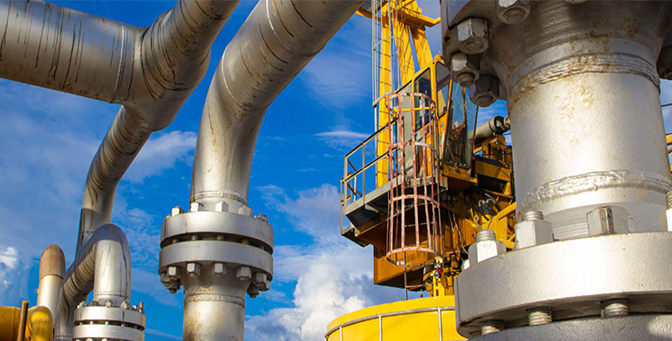Pipe Insulation is a crucial aspect of building design, ensuring efficiency, safety, and longevity in residential, commercial, and industrial settings. It offers numerous benefits, including energy conservation, temperature regulation, condensation prevention, and fire safety. This article explores the importance of pipe insulation, its various types, and the advantages it provides.
1. Energy Efficiency and Cost Savings
One of the primary reasons for insulating pipes is energy conservation. Uninsulated pipes lose heat rapidly, leading to increased energy consumption as heating systems work harder to maintain the desired temperature. Conversely, insulation helps retain heat, reducing energy waste and lowering utility bills. This is particularly important for hot water systems, where energy loss can be significant.
In industrial settings, process piping transports fluids at specific temperatures. Insulation helps maintain these temperatures, reducing the need for additional heating or cooling, thus minimizing operational costs. By reducing energy demand, insulated pipes contribute to a more sustainable and eco-friendly environment.
2. Temperature Regulation and Comfort
Pipe insulation plays a vital role in maintaining consistent temperatures within a building. In colder climates, insulation prevents pipes from freezing, reducing the risk of bursts and water damage. In hotter environments, it prevents excessive heat loss or gain, ensuring optimal performance of HVAC systems.
Additionally, insulation helps regulate indoor temperatures by preventing unnecessary heat transfer from pipes to surrounding areas. This enhances comfort levels in homes, offices, and industrial spaces, reducing the need for additional heating or cooling solutions.
3. Condensation Control and Corrosion Prevention
Uninsulated pipes often experience condensation, particularly when cold water runs through them in warm environments. This condensation can lead to moisture buildup, which can cause corrosion, mold growth, and structural damage.
By adding insulation, condensation is minimized, protecting pipes from rust and deterioration. This is especially crucial in industrial and commercial settings where metal pipes are commonly used. Corrosion-resistant pipes lead to a longer lifespan, reducing maintenance costs and enhancing overall system performance.
4. Freeze Protection for Water Pipes
One of the biggest risks of exposed pipes in cold climates is freezing. When water inside a pipe freezes, it expands, causing the pipe to crack or burst. This can lead to significant water damage, costly repairs, and even structural issues in buildings.
Pipe Insulation acts as a protective barrier, reducing the risk of freezing by retaining heat within the pipes. This is especially important in residential homes, hospitals, and commercial buildings where continuous water supply is necessary. Insulating exposed pipes, especially those in attics, basements, or outdoor areas, can prevent costly damage and ensure uninterrupted water flow.
5. Fire Safety and Passive Fire Protection
Pipe Insulation is an integral part of Passive Fire Protection systems in buildings. Specialized fire-resistant insulation materials help contain the spread of flames, smoke, and toxic gases through piping networks. In the event of a fire, insulated pipes reduce heat transfer and slow down the fire’s progression, allowing more time for evacuation and firefighting efforts.
Additionally, certain insulation materials, such as mineral wool and intumescent coatings, provide enhanced fire resistance, making them ideal for fire-rated construction projects. Compliance with fire safety regulations requires proper insulation of pipes in critical areas such as escape routes, mechanical rooms, and service shafts.
6. Noise Reduction and Acoustic Control
Pipes, particularly in HVAC and plumbing systems, can generate significant noise due to water flow, expansion, and contraction. This can be a nuisance in residential apartments, office buildings, and hospitals where quiet environments are essential.
Insulating pipes with sound-absorbing materials reduces noise transmission, creating a more comfortable indoor atmosphere. Acoustic insulation minimizes vibrations and muffles water flow sounds, improving overall living and working conditions.
7. Prevention of Heat Loss in Industrial Processes
Industries rely on insulated pipes to transport high-temperature fluids, steam, or chemicals. Without insulation, these fluids lose heat rapidly, affecting operational efficiency and product quality. Proper insulation ensures that process temperatures are maintained, reducing energy consumption and preventing system failures.
For example, in the food and beverage industry, insulation is critical to maintaining hygiene and preventing temperature fluctuations in production lines. Similarly, in the pharmaceutical sector, insulated pipes help control temperature-sensitive processes, ensuring product integrity and compliance with safety standards.
8. Extending Equipment Lifespan and Reducing Maintenance Costs
Pipe insulation not only protects the pipes themselves but also extends the lifespan of associated equipment. Uninsulated pipes are more prone to thermal expansion and contraction, leading to stress on joints and fittings. Over time, this can cause leaks, cracks, and mechanical failures.
By insulating pipes, thermal stress is minimized, reducing wear and tear on the entire piping system. This results in lower maintenance costs, fewer repairs, and an overall increase in the longevity of infrastructure.
9. Compliance with Building Regulations and Safety Standards
Many countries and regions have strict building codes that require pipe insulation for fire safety, energy efficiency, and environmental sustainability. Compliance with these regulations is crucial for property owners, developers, and industrial facilities.
Adhering to insulation standards not only ensures safety but also helps in acquiring certifications such as LEED (Leadership in Energy and Environmental Design) and BREEAM (Building Research Establishment Environmental Assessment Method). These certifications enhance property value and attract eco-conscious investors.
10. Environmental Sustainability and Carbon Footprint Reduction
Reducing energy consumption through proper pipe insulation contributes to a greener environment. By conserving heat and minimizing waste, buildings lower their carbon footprint, supporting global efforts to combat climate change.
Many insulation materials today are manufactured using eco-friendly processes and recyclable components, making them a sustainable choice for modern construction. Investing in high-quality insulation is a step towards energy-efficient, environmentally responsible building design.
Conclusion
Pipe Insulation is an essential component of modern construction, providing numerous benefits such as energy savings, temperature regulation, fire safety, and noise reduction. Whether for residential, commercial, or industrial applications, investing in quality insulation enhances efficiency, reduces maintenance costs, and ensures compliance with safety standards. Prioritizing pipe insulation leads to long-term cost savings, sustainability, and improved system performance.
